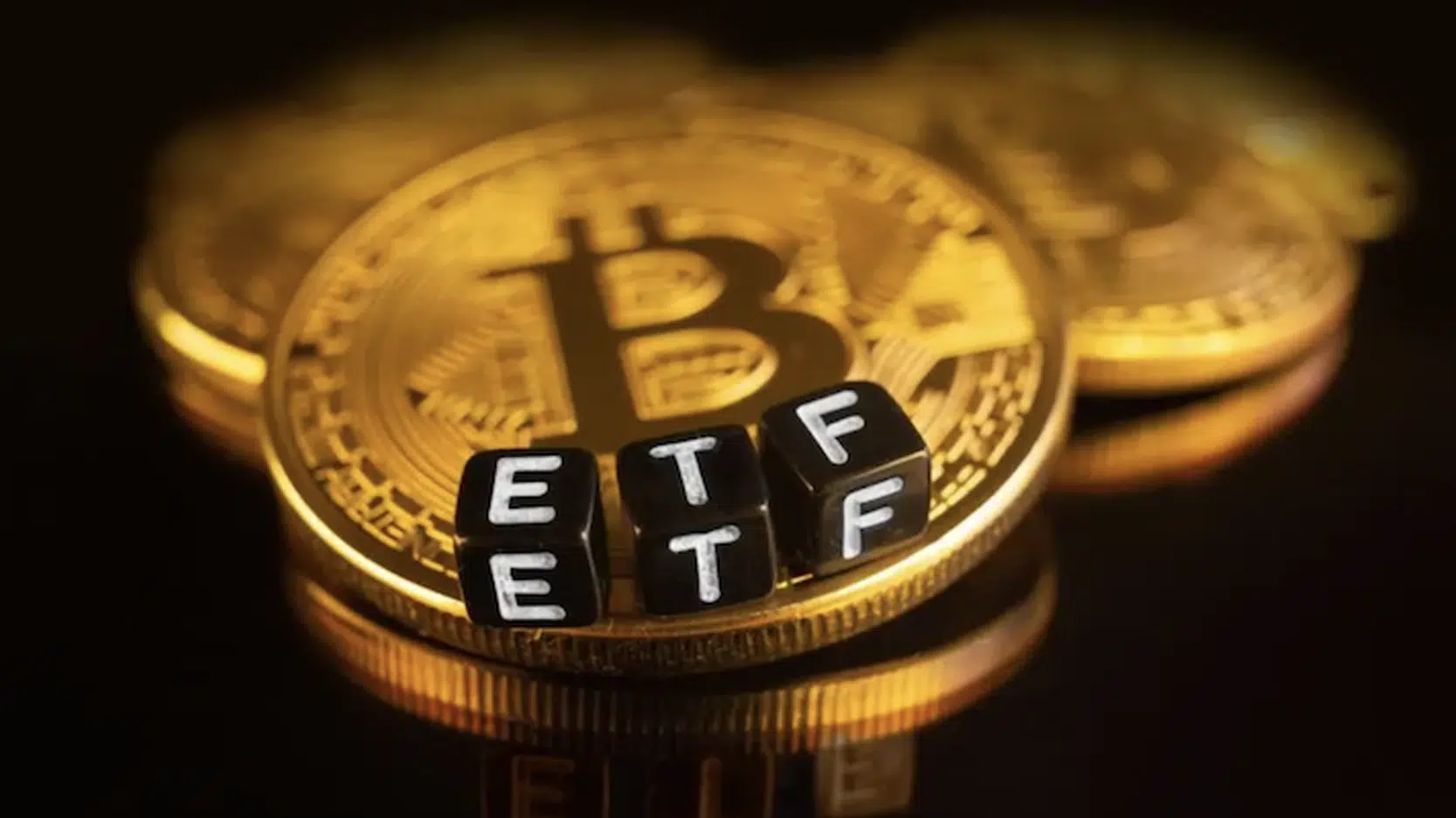Is it Still Worth Buying Bitcoin ETFs? An Analysis of Ethereum’s Potential and the Future of Cryptocurrency

The Overall Outlook for Cryptocurrency: Where Do We Stand in 2025?
Have you also been flooded with news about the Bitcoin spot ETF launch, sparking a sense of curiosity and an urge to invest? Watching the market’s ups and downs, you might be asking, “Is it too late to invest in cryptocurrency? Which has more potential, Bitcoin or Ethereum?” These are questions almost every newcomer to cryptocurrency considers. Don’t worry, this article will provide a comprehensive analytical framework, from the timing of Bitcoin investments and the unique potential of Ethereum to how Taiwanese investors view Bitcoin ETFs, fully analyzing the 2025 cryptocurrency market outlook to help you make more informed investment decisions.
Key Takeaways:
- Increased Market Maturity: The approval of Bitcoin spot ETFs signifies recognition from traditional financial institutions, bringing unprecedented capital and attention to the market.
- The Dilemma of Timing: Price volatility is the norm, but the long-term market trend remains bullish. The key is to understand the asset’s value rather than chasing short-term prices.
- Differentiation of the Two Giants: Bitcoin is “digital gold,” while Ethereum is the “operating system of the decentralized world.” Their potential paths differ, but both are worthy of attention.
Market Trend Analysis: The Influx of Institutional Capital and a Changing Regulatory Environment
In the past, cryptocurrency was often seen as a playground for geeks and retail investors. However, from late 2024 to early 2025, we witnessed a historic shift. With the U.S. Securities and Exchange Commission (SEC) approving Bitcoin spot ETFs, Wall Street’s massive funds finally have a compliant and convenient channel for entry. This is not just about money; it’s about legitimization.
This means:
- Credibility Endorsement: The issuance of related products by asset management giants like BlackRock and Fidelity is a declaration to investors worldwide that cryptocurrency is an asset class worth allocating to.
- Regulatory Clarity: Although countries are still figuring things out, the emergence of ETFs forces regulatory bodies to establish clearer rules. A more mature market with established regulations is an absolute positive for long-term investors.
Why is the Whole World Talking About Cryptocurrency Now?
Besides institutional entry, several macroeconomic factors have also brought the future of cryptocurrency into the spotlight:
- Hedge Against Traditional Financial Inflation: The loose monetary policies of major global economies in recent years have led many to seek assets that can preserve value. Bitcoin, with its fixed supply of 21 million coins, is hailed as “digital gold” and has become a popular option against fiat currency devaluation.
- The Value of Technological Innovation: The decentralized finance (DeFi), non-fungible tokens (NFTs), and smart contract applications pioneered by Ethereum are gradually disrupting traditional industries like finance, art, and even gaming. This is not just speculation, but an investment in future technology.
Focus Analysis: Is It Still a Good Time to Buy Bitcoin (BTC)?
Every time Bitcoin rallies, people ask, “Is it too late to get on board?” There’s no standard answer, but we can analyze it rationally from several angles.
The Bull Case: Why is Bitcoin Still the Leader?
- Consensus as a Store of Value: Bitcoin is the oldest and most consensus-driven asset in the cryptocurrency world. It has no complex applications; its sole purpose is to be a decentralized store of value, free from the control of any government or institution. In an era of high global economic uncertainty, this characteristic is invaluable.
- Absolute Scarcity: The code is set in stone—the total supply of Bitcoin is 21 million, and not a single coin more will ever be created. As demand from institutions and retail investors continues to grow, this scarcity will provide strong long-term price support.
- Network Effect: As the first cryptocurrency, Bitcoin boasts the most robust network, the highest security (protected by hash power), and the widest brand recognition, creating a moat that is difficult for any newcomer to surpass in a short time.
The Bear Case: Risks and Challenges to Consider Before Investing in Bitcoin
Of course, investing in Bitcoin is not a smooth ride. You must be clearly aware of the potential risks:
- Extreme Price Volatility: Bitcoin’s price can fluctuate by more than 10% in a single day. If you’re not faint of heart or if the funds are needed in the short term, you should think twice.
- Regulatory Uncertainty: Although ETFs have brought a glimmer of hope, governments’ attitudes toward cryptocurrency are still evolving. Any new regulatory policy could cause short-term market shocks.
- Technical and Security Risks: While the Bitcoin network itself is extremely difficult to attack, individual investors still face risks such as losing private keys or exchange hacks.
The Key Question: Is Now a Good Time to Buy?
Rather than guessing the “best entry point,” it’s better to think about a “suitable allocation strategy.” Historically, Bitcoin has often experienced a bull run after a “halving” event. While history doesn’t simply repeat itself, the change in supply and demand is real. For long-term investors, instead of waiting for a perfect low, it’s better to buy in batches through dollar-cost averaging to average costs and diversify risks.
A Must-Read for Taiwanese Investors: What is a Bitcoin ETF and How Does It Affect Your Investment?
The arrival of Bitcoin ETFs is one of the most significant events in the 2025 crypto investment circle, especially for those who want to invest but are unfamiliar with directly handling cryptocurrencies. It’s a major breakthrough.
What is a Spot Bitcoin ETF? How is it Different from Buying Bitcoin Directly?
Imagine you want to invest in gold. You could go to a jeweler and buy a gold bar (direct ownership), or you could buy a gold ETF through your brokerage account (indirect ownership). Bitcoin ETFs work on the same principle.
A Spot Bitcoin ETF is a fund listed on a traditional stock exchange that directly holds Bitcoin as its underlying asset. When you buy a share of the ETF, you indirectly own a corresponding value of Bitcoin.
| Comparison Item | Directly Buying Bitcoin (BTC) | Buying a Bitcoin Spot ETF |
|---|---|---|
| Platform | Cryptocurrency Exchange (e.g., Binance, Coinbase) | Traditional Brokerage Account |
| Asset Custody | Requires self-management of private keys or trusting an exchange | Managed by the fund issuer and professional custodians |
| Pros | True asset ownership, 24/7 trading, ability to participate in DeFi | Simple to operate, no need to worry about private keys, regulated by financial laws |
| Cons | Steep learning curve, security risks, cumbersome deposit/withdrawal process | Requires management fees, has trading hour limitations, no actual ownership of BTC |
Can Taiwanese Investors Invest in Bitcoin ETFs? Current Channels and Considerations
As of early 2025, Taiwan’s Financial Supervisory Commission (FSC) has not yet authorized domestic investment trust companies to issue crypto-related ETFs, nor has it approved the direct listing of overseas Bitcoin spot ETFs on the Taiwan stock market. This means Taiwanese investors cannot directly purchase these US-listed ETFs through local Taiwanese brokerages.
However, interested investors shouldn’t be discouraged, as there are alternative routes:
- Through Overseas Brokerages: If you have an overseas brokerage account (such as Firstrade, Interactive Brokers, etc.), you can directly place orders for these Bitcoin spot ETFs just like buying US stocks.
- Sub-brokerage (複委託): Some domestic securities firms offer sub-brokerage services that can help clients place orders for overseas stocks or ETFs, but the fees are typically higher and require careful cost evaluation.
Important Reminder: Before investing, be sure to confirm the legitimacy and associated fees of the channel, and understand the potential tax implications of overseas investments.
What is the Long-Term Potential Impact of ETF Approval on Bitcoin’s Price?
In the short term, the market may experience volatility as the news is priced in. However, in the long term, the impact of ETFs is profound and positive. It opens the door for huge pools of capital from pensions, mutual funds, and other traditional sources, which seek long-term, stable growth. As capital continues to flow in, it will provide a strong price floor for Bitcoin and promote wider recognition of its value.
The Great Potential Debate: Where Does the Future Value of Ethereum (ETH) Lie?
If Bitcoin is the gold of the digital world, then Ethereum (or Ether) is its “operating system.” It is not just a currency but a decentralized application platform full of infinite possibilities. For investors seeking higher growth potential, Ethereum has always been a hot topic of discussion.
More Than Just a Currency: The Powerful Potential of the Ethereum Ecosystem
The value of Ether primarily comes from the underlying Ethereum network. Developers can build a wide variety of decentralized applications (DApps) on this network, and running these applications requires consuming ETH as “gas” (Gas Fee). This creates real demand for ETH.
Currently, the Ethereum ecosystem is flourishing:
- Decentralized Finance (DeFi): You can lend, trade, and manage your finances on it without going through traditional banks.
- Non-Fungible Tokens (NFTs): From digital art to gaming items, NFTs grant unique ownership to digital assets.
- Layer 2 Scaling Solutions: To address network congestion and high Gas Fees, various Layer 2 solutions (like Arbitrum, Optimism) are booming, making Ethereum transactions faster and cheaper, further expanding its use cases.
Analysis of the Long-Term Impact of Recent Upgrades on Ethereum
Ethereum is constantly evolving. The transition to a Proof-of-Stake (PoS) mechanism with “The Merge” significantly reduced energy consumption and decreased ETH issuance, even making it deflationary at times. The more recent “Dencun Upgrade” aims to reduce transaction costs on Layer 2, which will greatly boost the activity of the entire ecosystem.
Each successful upgrade demonstrates the vitality of the Ethereum development community and its ability to execute its roadmap, which is a strong support for its long-term value.
Bitcoin vs. Ethereum: How Should I Choose or Allocate?
This is a classic question, and the answer depends on your investment goals and risk tolerance.
- If you are seeking stability and believe in the store-of-value narrative of Bitcoin as “digital gold,” then Bitcoin should be your core holding.
- If you are bullish on the future applications of blockchain technology and are willing to take on higher risk for potentially higher returns, then the potential of Ethereum should not be overlooked.
A common strategy is to allocate the majority of your funds to the relatively stable Bitcoin and invest a smaller portion in Ethereum or other promising cryptocurrencies to balance risk and reward. Remember, in the investment world, you never need to go “all-in” on a single asset.
For more basic knowledge for new investors, you can refer to our related articles. A solid foundation will help you go further.
Conclusion: How to Plan Your First Cryptocurrency Investment
In summary, the 2025 cryptocurrency market has entered a new phase with the launch of Bitcoin ETFs. The entry of institutional funds and increasing regulatory clarity have laid a healthy foundation for the market’s long-term development.
- Bitcoin, as the anchor of the crypto world, has solidified its status as a store of value, making it an essential part of any asset allocation.
- Ethereum, with its powerful ecosystem and continuous technological upgrades, shows enormous growth potential and is an excellent target for investing in the future.
For novice investors, our advice is:
- Learn Before You Invest: Take the time to understand the assets you are investing in and don’t blindly follow trends.
- Start Small: Invest an amount of money that you can afford to lose without affecting your life.
- Hold for the Long Term: Take a long-term perspective and avoid making emotional decisions based on short-term market fluctuations.
Your cryptocurrency investment journey is just beginning. Stay curious, keep learning, and manage your risks well, and you will have the opportunity to share in the rich rewards of this digital revolution.
Frequently Asked Questions (FAQ)
❓Is investing in cryptocurrency high-risk? How can it be managed?
Yes, cryptocurrency is a high-risk asset, characterized by significant price volatility. Effective risk management strategies include: 1. Only investing funds you can afford to lose. 2. Diversifying your assets and not putting all your money into a single cryptocurrency. 3. Adopting a dollar-cost averaging strategy to average out costs. 4. Storing your cryptocurrencies in a secure personal wallet instead of leaving them all on an exchange.
❓Besides Bitcoin and Ethereum, are there other cryptocurrencies worth watching?
Of course. The cryptocurrency market is full of innovation. Besides BTC and ETH, there are many projects focusing on different areas, such as Polkadot (DOT) for cross-chain interoperability, Solana (SOL) as a high-performance public chain, and various Layer 2 solution tokens. However, investing in these “altcoins” requires more in-depth research as their risks are typically higher than BTC and ETH.
❓How much money is appropriate to invest?
There is no standard answer to this question; it depends entirely on your personal financial situation and risk tolerance. A common recommendation is to keep your cryptocurrency allocation between 1% and 5% of your total investment portfolio. For beginners, starting with a small amount, such as a few hundred or a few thousand dollars, to experience the entire process of buying, holding, and selling is a good idea. You can consider adding more funds once you become more familiar with it.
❓Do Taiwanese investors need to pay taxes on cryptocurrency gains?
According to current Taiwanese tax laws, profits from cryptocurrency transactions are considered “property transaction income” and should be declared as part of personal comprehensive income tax. It is advisable for investors to keep all transaction records to calculate profits and losses during tax season. As regulations are still evolving, consulting a professional accountant for the most accurate information is recommended.
Related Articles
-
As the announcement of the 2025 Budget on February 26, 2025, approaches, Hong Kong society is closely watching how the government will balance the need for relief measures with structural reforms amidst the pressure of its HK$680 billion fiscal reserves. Financial Secretary Paul Chan Mo-po's recent emphasis on "precision in...2025 年 10 月 11 日
-
The Hong Kong Securities and Futures Commission (SFC) officially granted operating licenses to two cryptocurrency trading platforms—PantherTrade and YAX—on January 27, 2025, further promoting the compliant development of Hong Kong's crypto market. Since launching its licensing program in mid-2024, the SFC has issued licenses to seven Virtual Asset Trading Platforms...2025 年 10 月 11 日
-
As the U.S. Consumer Price Index (CPI) for January exceeded expectations, market forecasts for the Federal Reserve's future monetary policy shifted, causing the U.S. Dollar Index to rise rapidly and leading to a pullback in gold prices. However, despite this pressure, the gold market still shows potential for growth, primarily...2025 年 10 月 11 日












